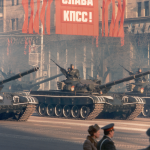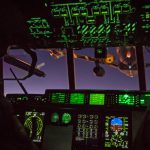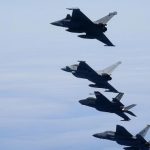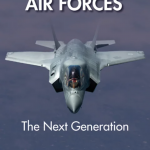The French language original edition of “Chef de Guerre” (Warlord) is available here from Louis de Mareuil
Operation Barkhane began in August 2014 and followed on from Operation Serval which saw French forces clear Islamic fighters from the north of Mali. Barkhane did not just subsume Serval’s mantle, it expanded French operations across the vast Sahel region of sub-Saharan Africa. French forces operate alongside a number of units drawn from the G5 Sahel nations and UK forces have also been deployed in support of Barkhane since 2018.
Saillans’ ‘Chef de Guerre’ is the story of his part in that conflict; his training and the missions he took part in over a 10-year career in the French Commandos Marine. Although Saillans has made his own views clear on how the French Government are conducting the operation, we see none of this in ‘Chef de Guerre’, where the focus is on the Marine and his unit. Although the author is perfectly happy to show his face in public, Saillans is not his real name. His nom de plume is a nod to Count Francois-Louis de Saillans, a successful soldier renowned for his daring ‘commando-style’ tactics during the 18th century.

Saillans pulls no punches. At the very outset, the reader is left in no uncertain terms of the sacrifices made during this period. The opening chapter describes very movingly, the funeral of two of Saillans’ comrades who were killed whilst rescuing hostages in Burkina Faso in May 2019. This sets the tone for what is to follow: a series of tightly written immersive chapters that take the reader from Saillans’ early career as a trainee pilot, through the selection process and gruelling training required to become a Marine Commando.
This is not a story that glorifies killing. In fact, this book will disappoint anyone who is looking for an excessive body count. Many of the operations described by Saillans do not result in massed firefights; but the tension that lies behind each plan, each approach to target and each contact is palpable. We are warned at the very outset that ‘places and dates are not specified’ and that certain events have been omitted for security reasons. Whilst this is perfectly understandable, it does leave the reader trying to piece together some sort of timeline. The chapters are stand alone, almost vignettes in their own right. The lack of continuity is perhaps the most disappointing aspect of the book, and one that could have been rectified with a series of basic links or segues.
Saillans clearly takes great pride in his own status and unique role as a Marine Commando, but he is messianic in the way he describes the feeling of belonging and camaraderie within his elite team. In the chapter covering a terrorist attack near his base, his frustration and anger is palpable when the local security forces choose to ignore the offer of help from his unit and deal with the situation themselves – at great cost to those killed in the operation. We are also given an insight into his thoughts on how the American Special Forces take a different view to his own regarding deaths and body counts.
For the reader more familiar with British or perhaps American forces, ‘Chef de Guerre’ also provides an interesting insight into the training and deployment of French special forces. Particularly in the way they are equipped and interact with other Government agencies. This is certainly a bonus in learning how other nations conduct their operations; we see Saillans’ team working closely with the Commando Parachutistes de l’Air and instead of Apaches and Chinooks, its Tigers and Carcals.
‘Chef de Guerre’ has broken new ground in France. It has shone a light on French operations in the Sahel at a time when the Barkhane is facing increasing unpopularity. Saillans has given a number of interviews to coincide with the launch of his book where he has very critical of the lack of success. He believes that the French Government needs to change its approach and win over the ‘hearts and minds’ of the population. This may seem familiar to the British reader, but it seems this is a lesson that the French too, are also having to relearn.

Phil Clare
Phil Clare is a former RAF Logistics Officer. He has over 30 years experience of single and joint service environments, as well as operational experience that spans Op GRANBY to HERRICK.





